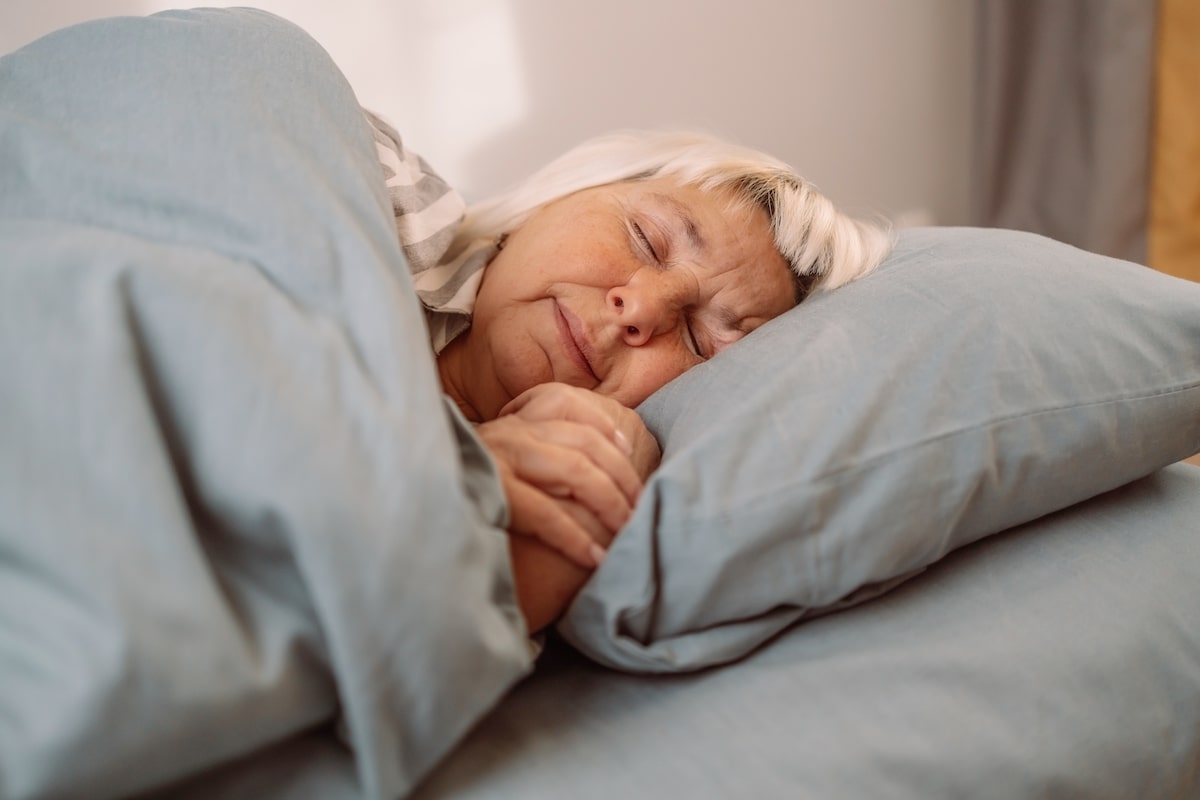Sleep is an often-overlooked aspect of our health and wellness, regardless of age; however, many of us do not fully understand how. Our sleep patterns and needs evolve as we grow older, and these changes can be challenging for older adults and their families.
At Sunscape™ Boca Raton, we offer welcoming spaces and luxury senior living apartments to help residents relax and get the quality sleep they deserve. Our retirement community in Boca Raton, Florida, is exploring how aging affects sleep and how you can implement better sleep habits to ensure restful nights and energetic days.
How Does Aging Affect Sleep?
The aging process leads to several physiological changes that can affect sleep quality. These changes often result in fragmented sleep and lighter sleep overall. The body’s internal clock, known as the circadian rhythm, may shift, causing older adults to feel sleepy earlier in the evening and wake up earlier in the morning. Additionally, the production of melatonin, the hormone that regulates sleep, decreases with age, leading to difficulties in falling asleep and staying asleep.
Nocturia
It’s common for older adults to wake up multiple times during the night to urinate. This condition, known as nocturia, can significantly disrupt sleep and contribute to daytime fatigue. Ensuring proper hydration during the day and limiting fluids before bedtime can help mitigate this issue.
Daytime Napping
Older adults often find themselves taking more naps during the day. This can be due to a variety of factors, including changes in sleep patterns, health conditions, or simply the natural aging process. While short naps can be beneficial by providing a quick boost of energy, improving mood, and enhancing alertness, excessive daytime sleepiness can interfere with nighttime rest.
Discomfort and Pain
Chronic back, neck, or joint pain is another common reason for sleep disturbances among older adults. These persistent pains can make it difficult to find a comfortable sleeping position, leading to frequent awakenings throughout the night. Pain and sleeplessness can become a vicious cycle in which less sleep can lead to more pain, exacerbating the original discomfort and further disrupting sleep patterns.
Anxiety or Depression
Mental health conditions such as anxiety and depression can severely impact sleep quality, leading to difficulties falling asleep, staying asleep, or experiencing restful sleep. These disturbances can, in turn, worsen anxiety and depression symptoms, creating a vicious cycle.
Neurodegenerative Disorders
Neurodegenerative disorders like Alzheimer’s and Parkinson’s disease can significantly disrupt sleep patterns. Individuals living with these conditions may experience restlessness, confusion, and difficulty staying asleep. However, better sleep habits can help alleviate the symptoms of these conditions and lead to more restful sleep.
Decreased Physical Activity and Sunlight Exposure
It’s common for older adults to reduce their physical activity and stay indoors more, but a sedentary lifestyle can negatively impact sleep quality. Regular physical activity, even simple exercises like walking or stretching, can lead to deeper and more restorative sleep. Additionally, limited exposure to natural sunlight can disrupt the sleep-wake cycle. Promoting outdoor exercise during daylight hours can help regulate sleep patterns and enhance mood.
Sleep Apnea
Sleep apnea, characterized by interrupted breathing during sleep, is common in older adults. Seeking a medical evaluation and treatment options such as CPAP therapy can drastically improve sleep quality and overall health.
Better Sleep Habits for Older Adults

Get Plenty of Exercise
Regular physical activity promotes better sleep by reducing stress and anxiety. Aim for at least 30 minutes of low-impact exercise during daylight hours. Simple exercises include walking, yoga, swimming, or tai chi.
Reduce Bedroom Distractions
Setting up a serene and distraction-free bedroom can significantly improve sleep quality. Keep the bedroom cool, dark, and quiet, and remove electronic devices that can interfere with sleep. Additionally, establishing a consistent bedtime routine signals the body that it’s time to wind down.
Maintain a Healthy Diet

Eating a balanced diet abundant in fruits, vegetables, and whole grains can significantly enhance sleep quality. These foods provide essential vitamins, minerals, and antioxidants that support overall health and well-being. To avoid disrupting sleep patterns, it’s crucial to steer clear of large meals, caffeine, and alcohol near bedtime.
—
Getting enough sleep is essential for all of us and implementing better sleep habits can make a significant difference in sleep quality.
To learn more about our retirement community in Boca Raton, Florida, and how we can help you enhance your sleep hygiene, we invite you to contact us or schedule a visit to Sunscape Boca Raton.



